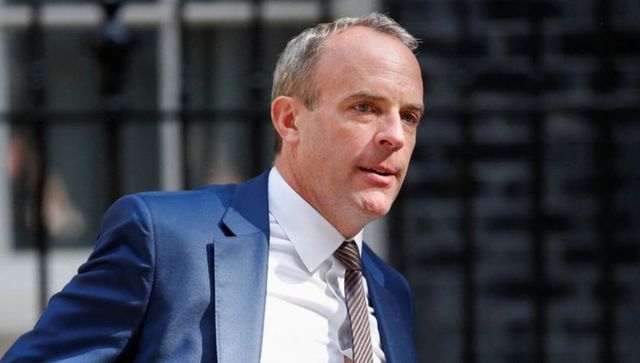The classic BBC serial Yes, Minister (and its sequel Yes, Prime Minister) is pretty much the template of the Babu-Mantri relationship in Britain that the world’s viewers—Indians included—regard as authentic. The bumbling, inept political leader is manipulated and moderated by his wily bureaucrats, with true progress (or victory) happening for either side only via trade-offs and compromises. But at the end of the day, and the episode, there are no hard feelings. But that was—and remains—fiction. The serial debuted 43 years ago. Much water has flowed down the Thames since the time those in Whitehall settled their different approaches and goals with clever wordplay and there was no real desire to disrupt age-old power equations. Now, British media is agog with reports and accusations of ministers and their mandarins locked in alleged verbal battles, sideswiping and powerplay, not unlike a schoolyard at recess time. Far from being worthy (and wordy) successors to the diabolical but ever-smiling Sir Humphrey Appleby or even the quiet, loyal and aptly named Bernard Woolley who remained impervious to whatever jibe their minister Jim Hacker lobbed at them, today’s British babus appear to be driven to the end of their tether at even a scowl from their ministers but less the occasional robust language. The British bureaucracy’s stiff upper lip has become a quivering new age pout. The current Justice Minister (and Deputy PM) Dominic Raab is the latest to be accused of “bullying”—a very ominous term. Stalling a meeting till a paper is found, demanding quick answers, and—horror of horrors—insisting all proposals must be confined to just both sides of an A4 sheet and no more. That last one was clearly the last straw, and perhaps the only aspect of Mr Raab’s supposedly bullying tactics that Sir Humphrey would have found untenable too. Previous ministers to have the bullying charge levelled at them include Priti Patel and Gavin Williamson. Brusque language and preference for speed and efficiency appear to be major triggers for this outbreak of the shivers among the British babus. Clearly people in the private sector—whose jobs depend on delivering—are more used to the “shape up or ship out” kind of demanding bosses than the cossetted, tenure-protected occupants of high bureaucratic office. The report of the ‘advisor’ on the allegations against Patel is indicative. “Her approach on occasions has amounted to behaviour that can be described as bullying in terms of the impact felt by individuals. To that extent her behaviour has been in breach of the ministerial code, even if unintentionally.” In other words her bureaucrats deemed her a bully, and truth was judged by numbers. Another schoolyard term—“ganging up”—was not considered, evidently. India’s civil service is a British legacy in more ways than one. And while in service they have adhered to the original rules of engagement with the elected executive—never complain, never explain, just like the British royals—far more faithfully than their British preceptors. Just a few senior bureaucrats resigned after being abruptly transferred although many discover a propensity to write irate open letters to their former bosses in groups once they retire. But they have never ganged up while in service to stymie the political executive with accusations of “bullying” behaviour. They usually crib in private about “difficult” ministers—in every dispensation—and warn their colleagues about which one to avoid if they can. And indeed, some ministries do have higher attrition rates than others. Mass protests by civil servants over any mantris’ unpleasant behaviour has not been seen, though. So far, that is. Everyone does not have a similar nature. There are driven people and laidback ones, rustics and sophisticates; there are also amiable people and unpleasant ones, charmers and introverts. Civil servants and ministers are equally likely to be any or a mix of these. The big difference is that bureaucrats do not have to answer to the people, their ministers do. Ultimately, civil servants are only accountable to their ministers—whom British babus are now attempting to silence. If they succeed in getting Dominic Raab’s scalp on the issue of “bullying” it will set a dangerous precedent and encourage more such gambits. It will also ensure that ministers in future will be wary of pushing bureaucrats to work at anything other than their customary glacial pace. The opposition Labour Party in Britain can only support these “bullied’ babus at their own peril as after the next elections they may face exactly the same treatment after the initial honeymoon. There are far more serious transgressions that civil servants should rightfully be on the lookout for in their ministers. Corruption. Bribery. Moral turpitude. Mala fide or reckless intentions in decision making. Breaking rules—such as having parties in Downing St while the nation was in lockdown. But attempting to gag ministers by broadening the definition of bullying and elevating it to a hanging offence (even if metaphorically) is utterly unwarranted and sinister. India should also watch and take note. Too many government initiatives falter in execution here because of lingering bureaucratic red tape. If Indian civil servants see another possible way to stop inconveniently efficient and results-driven ministers in their tracks by ganging up to make allegations such as “bullying”—which will be dutifully amplified by sympathetic sections of the media and social media—it will not be long before some of them try to follow suit. The author is a freelance writer. Views expressed are personal. Read all the Latest News , Trending News , Cricket News , Bollywood News , India News and Entertainment News here. Follow us on Facebook, Twitter and Instagram.
If British bureaucrats succeed in getting Dominic Raab’s scalp on the issue of “bullying” it will set a dangerous precedent and encourage more such gambits. India should also watch this and take note
Advertisement
End of Article


)

)
)
)
)
)
)
)
)



